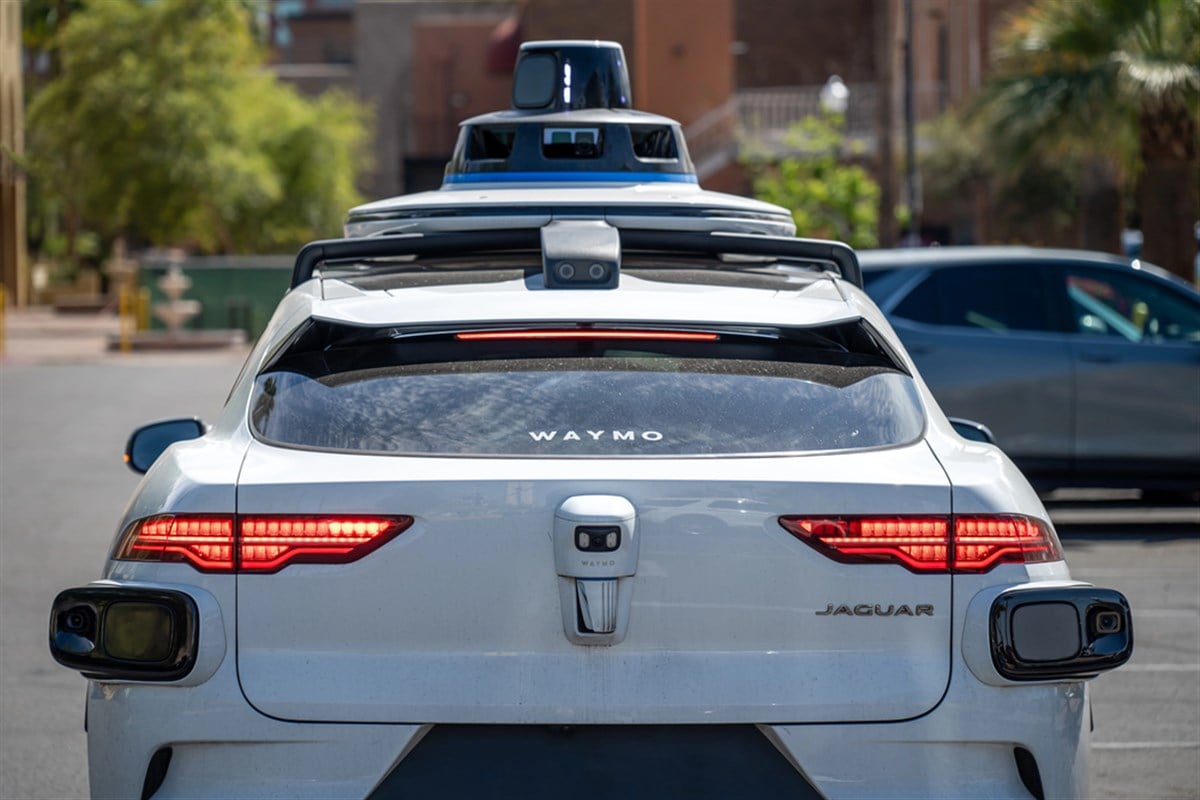|
|
|

|
|||||

|
|

Alphabet Inc. (NASDAQ: GOOGL) has long been regarded as a tech juggernaut, anchored by its dominance in search, advertising, and YouTube. But behind the scenes, the company has been investing heavily in moonshot ventures through its Other Bets segment, with Waymo, its autonomous driving unit, arguably the crown jewel.
And yet, as we move deeper into 2025, the spotlight on Waymo and the scrutiny grows brighter. While progress continues, challenges are intensifying.
New competitors, including Tesla’s rapid rollout of robotaxis, are creating a sense of urgency. Meanwhile, OpenAI’s recently reported plans to build a rival to Google Workspace could potentially shake up Alphabet’s core productivity suite business. In short, Alphabet is entering a phase where innovation is no longer just a choice, but a necessity.
Waymo was launched with a bold vision: to create a fully autonomous driver that’s safer, more efficient, and more scalable than any human-driven system. It’s one of the most advanced autonomous vehicle programs globally, with millions of miles driven on public roads.
The company’s driverless ride-hailing services in Phoenix and San Francisco have been live for months, and it has recently begun expanding into Los Angeles and Austin.
The long-term opportunity is massive. If executed at scale, autonomous ride-hailing could unlock multi-billion-dollar revenue streams and forever change urban mobility. As Alphabet increasingly leans on AI-driven innovation, Waymo aligns perfectly with the company’s broader thesis.
However, despite all the progress, monetization remains limited. Public perception and regulatory frameworks also continue to pose significant headwinds.
Waymo is a costly endeavor that falls under Alphabet’s Other Bets segment, which continues to lose money quarter after quarter.
Enter Tesla (NASDAQ: TSLA), which has officially launched its robotaxi program in Austin, with plans to rapidly expand to other markets by the end of the year. Tesla’s vertically integrated model, massive data advantage from real-world driving, and its new Cybercab represent a direct threat to Waymo’s leadership position.
Once proven and adopted, Tesla could scale much more quickly than Waymo and achieve profitability in a fraction of the time. One example of that is how current car owners could become business owners by utilizing their vehicles as part of a ride-hailing network.
Elon Musk has stated that Tesla owners may be able to earn money by adding their cars to the robotaxi fleet, effectively converting their vehicles into autonomous taxis.
While Tesla’s system is not without flaws, as is the case with most new and highly disruptive innovations in its infancy, its aggressive rollout timeline and massive public visibility could quickly steal both market share and mindshare.
Notably, Tesla’s brand, proven track record of success, and Elon Musk’s marketing and innovation prowess could attract more early adopters and generate momentum faster than Alphabet’s more cautious, methodical approach.
While the focus on Waymo is important, another major potential threat opened this week, targeting Alphabet’s core productivity business. Reports surfaced this week that OpenAI is exploring the creation of a new workspace productivity platform that could directly challenge Google Workspace.
While still speculative, the implications are serious. Google Workspace, which includes Gmail, Docs, Sheets, Meet, and more, is a cornerstone of Google Services, the segment that drives the majority of Alphabet’s revenue. Workspace doesn’t just generate direct subscription revenue. It also supports Google’s ad ecosystem and strengthens its enterprise moat.
If OpenAI manages to build a more innovative, AI-native workspace platform that leapfrogs existing tools, Alphabet could face the same disruption it once created. This potential shift wouldn’t immediately impact revenue, but over time, a loss of enterprise mindshare could have ripple effects across the company’s ecosystem.
Alphabet remains a tech powerhouse. In Q1 2025, the company reported revenue of $90.24 billion, beating estimates, and EPS of $2.81, which exceeded estimates by 38%. Advertising remains resilient, and Google Cloud continues to gain market share.
The company’s AI infrastructure is becoming increasingly integrated into nearly every product it offers. But several challenges exist, and Alphabet cannot afford to take its foot off the gas.
Maintaining dominance in core businesses, such as Google Services, even as rivals circle, is essential.
They must also convert ambitious long-term bets, such as Waymo, into meaningful growth drivers, or they risk falling behind more agile disruptors.
Before you make your next trade, you'll want to hear this.
MarketBeat keeps track of Wall Street's top-rated and best performing research analysts and the stocks they recommend to their clients on a daily basis.
Our team has identified the five stocks that top analysts are quietly whispering to their clients to buy now before the broader market catches on... and none of the big name stocks were on the list.
They believe these five stocks are the five best companies for investors to buy now...
The article "Alphabet’s Waymo and Services Beginning to Feel the Pressure?" first appeared on MarketBeat.
| 1 hour | |
| 3 hours | |
| 3 hours | |
| 4 hours | |
| 7 hours | |
| 7 hours | |
| 8 hours | |
| 8 hours | |
| 9 hours | |
| 9 hours | |
| 10 hours | |
| 11 hours | |
| 11 hours | |
| 11 hours | |
| 11 hours |
Join thousands of traders who make more informed decisions with our premium features. Real-time quotes, advanced visualizations, backtesting, and much more.
Learn more about FINVIZ*Elite